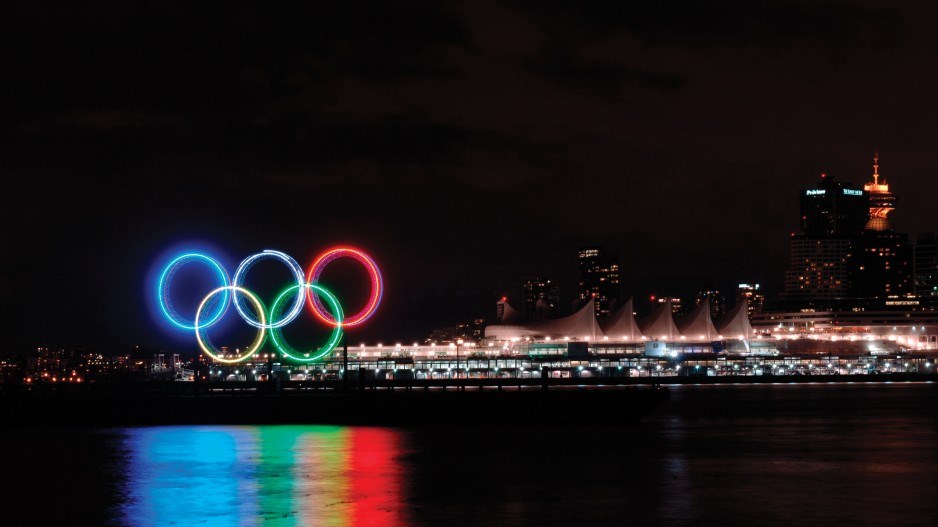If the Canadian Olympic Committee and Four Host First Nations can’t get back in the race for the 2030 Winter Olympics, the door could open later.
On Wednesday, International Olympic Committee president Thomas Bach addressed the previous day’s executive board decision to indefinitely delay naming a 2030 host so that the Future Host Commission can re-evaluate the way Winter Games are held.
That could mean creating a roster of cities with existing facilities to host the Winter Games on a rotating basis, which could reignite hopes for 2010 host Vancouver. The commission also decided it needed more time to decide whether to award the 2030 and 2034 Games simultaneously. Salt Lake City and Sapporo, Japan are the only two viable bids, after a proposal to bring the Games back to Vancouver failed to secure the necessary provincial government backing in October.
“The commission is saying by a double allocation, we would win some time to then establish a sound rotation system,” Bach told reporters after the third day of executive board meetings in Switzerland. “So you know, that this then would follow the allocation for 2030.”
The IOC had planned to choose the 2030 host by May 2023 at its annual meeting in Mumbai, but that got delayed to next fall. IOC officials did not provide a new schedule for negotiations with bid cities or a deadline to decide. The next milestone meeting after the 2023 annual session would be the standard pre-Games session before the Paris Olympics open in July 2024.
The IOC did not spell out the specific reasons for stopping shy of the double award, but a corruption scandal involving the Tokyo 2020 organizing committee has dominated headlines in Japan. The Salt Lake City group said it could be ready for 2030, but the U.S. Olympic Committee prefers 2034 so that it can avoid sponsor conflicts with Los Angeles 2028 Summer Games.
Christophe Dubi, the executive director of the Games, addressed the Japan controversy.
“We trust very much that those business practices of some Japanese individuals, which are allowed by some Japanese companies, are being looked into in a very, very serious fashion and we have the utmost confidence that the authorities will go to the bottom of this investigation when it comes to business practices,” Dubi said. “So full trust that what they are looking into, which is also to create a framework, a governance framework for event hosting in the future, will positively impact, including the project for Sapporo.”
On Tuesday, the B.C. government emphatically reiterated its decision not to fund another Games in 2030, due to a multitude of other spending priorities.
“The Province’s decision is binding and will not be revisited,” according to the Ministry of Tourism, Art, Culture and Sport.
The previous Vancouver city council agreed it would not support another Games without full backing from the provincial and federal governments. The only hope to resurrect a 2030 bid could be convincing the federal government to amend or waive the 2008-established federal policy for hosting international multisport Games.
“Canada will limit its contribution to a maximum of 35% of total event costs and will not exceed 50% of the total public sector contribution to the event,” the policy states.
More-importantly, the policy prohibits Ottawa from picking up the cost of losses: “At no time will the Government of Canada undertake to guarantee deficit funding of a bidding or hosting project.”
When the NDP government announced its decision in October, federal Sport Minister Pascal St-Onge said she respected the B.C. decision.
“For a bid of this kind to go forward, all levels of government need to be in favour,” she said.
The COC estimated Vancouver 2030 would cost $4 billion, including at least $1 billion from taxpayers. It proposed reusing most of the 2010 venues in Vancouver, Richmond and Whistler, with the exception of the Agrodome for curling, Hastings Racecourse for big air skiing and snowboard jumping and Sun Peaks resort near Kamloops for snowboarding and freestyle skiing.
The 2010 Games are believed to have cost $8 billion, all-in. The true costs are unknown, because the B.C. Auditor General never did a post-Games study, the organizing committee was not subject to the freedom of information law and its board minutes and financial files won’t be open to the public at the City Archives until fall 2025.




